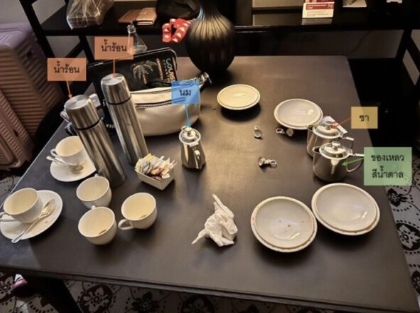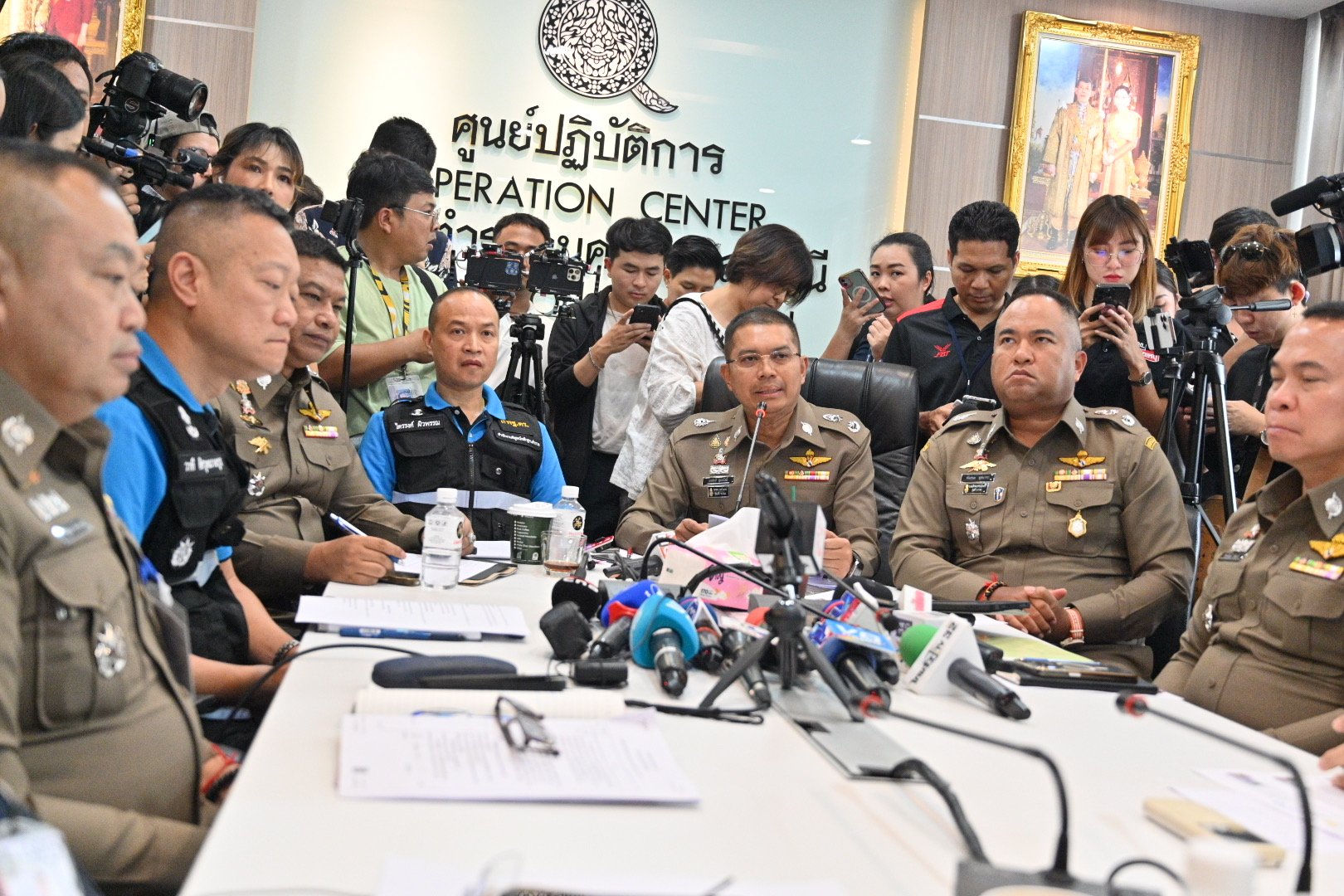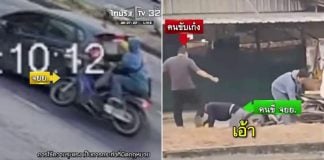Bangkok hotel cyanide deaths: What we know so far
Six people were found dead at the Grand Hyatt Erawan hotel on 16 July 2024. Investigations have revealed that the six were likely poisoned with cyanide in the Bangkok hotel room.
The substance was found in teacups that all of them had drank from.
All six were of Vietnamese descent, although two of them held American passports.
One of them, Sherine Chong — a Vietnamese-American — is believed to have poisoned the others before killing herself.
It is suspected that the group had a dispute involving money.
Here’s what is currently known about the Grand Hyatt Erawan case that has made headlines globally.
1. The victims in the Bangkok hotel cyanide case were of Vietnamese descent
The following victims were found dead in the hotel room, according to Khaosod English:
- Nguyen Thi Phuong, 46, Vietnamese. She was wearing a white shirt and was found dead near the room’s door. She entered Thailand on 12 July at 1.48pm from Ho Chi Minh City. She has visited Thailand thrice previously.
- Nguyen Thi Phuong Lan, 47, Vietnamese. Clad in a pink shirt, found dead in the bedroom. Entered Thailand on 4 July at 12.56pm from Danang. Had visited Thailand 17 times before.
- Pham Hong Thanh, 49, Vietnamese. Husband of Nguyen Thi Phuong, found dead in the bedroom. Entered Thailand for the first time, arriving with his wife on 12 July at 1.48pm from Ho Chi Minh City. His name wasn’t on the hotel check-in list as Nguyen Thi Phuong’s name was used.
- Tran Dinh Phu, 37, Vietnamese. Found dead near Nguyen Thi Phuong Lan and Dang Hung Van in room 502. Entered Thailand on 12 July at 12.28pm from Da Nang. He’d visited Thailand 11 times before and was a makeup artist.
- Sherine Chong, 56, Vietnamese-American. Entered Thailand on 5 July at 1.05pm from Ho Chi Minh City. Had visited Thailand five times before. She was the one who checked into room 502, where the incident occurred.
- Dang Hung Van, 55, Vietnamese-American. Wearing a navy blue shirt, found dead near Thi Nguyen Phuong Lan. Entered Thailand for the first time on 7 July at 9.55pm from Taipei.
Some of the deceased were in Thailand for the first time, while others had visited multiple times before.
Chong had apparently booked the room for Dang Hung Van, but he used his own credit card to confirm the booking.
2. Victims did not emerge from room after 15 July
According to The Guardian, Thai police said the group ordered food and English tea to the room on the fifth floor of the hotel on the afternoon of 14 July, around 1.57pm.
The order was for five plates of fried rice, five plates of tom yum kung, four plates of stir-fried vegetables, one plate of stir-fried morning glory, two pots of hot English tea, and six tea cups, Khaosod English reported.
Tran Dinh Phu ordered one more plate of fried rice and requested delivery at 2pm.
Noppasin Poonsawat, deputy commander of the Metropolitan Police Bureau, said a 56-year-old, suspected to be Chong, received the food and drinks and told hotel staff there was no need to serve the tea.
The individuals started entering the room from 2.03pm onwards. It was the last time they were seen alive.
CCTV footage showed that none of them were seen coming out after 2.17pm on Monday.
The following day, 16 July, all six were discovered dead by a member of the housekeeping staff. Chong had failed to check out of her room.
The food had been left uneaten, and was still wrapped in clingfilm. Meanwhile, cyanide was discovered in the teacups.

Source: Matichon
Police said no illegal materials had been found inside their luggage, which was searched overnight.
All the others had checked out of their rooms on 15 July before moving their luggage to Room 502.
3. Possible business dispute
Police interviewed relatives of the victims, and were able to find out more information.
Two members of the group, a married couple, had loaned 10 million Thai baht (S$372,991) to another member of the group, suspected to be Chong. The couple was identified as Nguyen Thi Phuong and Pham Hong Thanh by relatives.
They were to invest in a business project to build a hospital in Japan, and there appeared to be a dispute over money.
The project failed to get off the ground, and the couple suspected Chong was trying to con them out of the money.
The couple ran a construction company in Vietnam, police said.
Police also ruled out terrorism, suicide, robbery, or a fight as causes of death, noting that there had likely been a personal conflict within the group.
Although there was a seventh member of the group, the younger sister of one of the victims, she had left Thailand before the incident.
4. Perpetrator mixed cyanide into tea leaves to kill others in Bangkok hotel
Autopsy reports indicated that the perpetrator mixed cyanide with tea leaves, before the victims drank the brews and died.
“The hotel employees brought the teapot, milk and two bottles of hot water to the room, and the suspect laced the tea leaves with cyanide,” police noted.
“Cyanide dissolved in water would be tasteless, and so drinkers would have no idea,” Police Lieutenant General Trairong Phiwphan said.

Source: Khaosod English
“The toxin can take effect within less than five minutes, depending on the dosage. It prevents red blood cells from exchanging oxygen, leading to death. The mouths of cyanide poisoning victims usually have an almond-like smell.”
Dr Chanchai Sittipunt, the dean of medicine at Chulalongkorn University, confirmed that cyanide was likely responsible for the deaths.
Phantana Nutchanart, Deputy Commissioner of the Immigration Bureau, said that Thai immigration is coordinating with the Vietnamese and US embassies for more information.
Also read: Cyanide poisoning: What is cyanide & how is it lethal to humans?
Cyanide poisoning: What is cyanide & how is it lethal to humans?
Have news you must share? Get in touch with us via email at news@mustsharenews.com.
Featured image adapted from @thaich8news on X and Hyatt.








